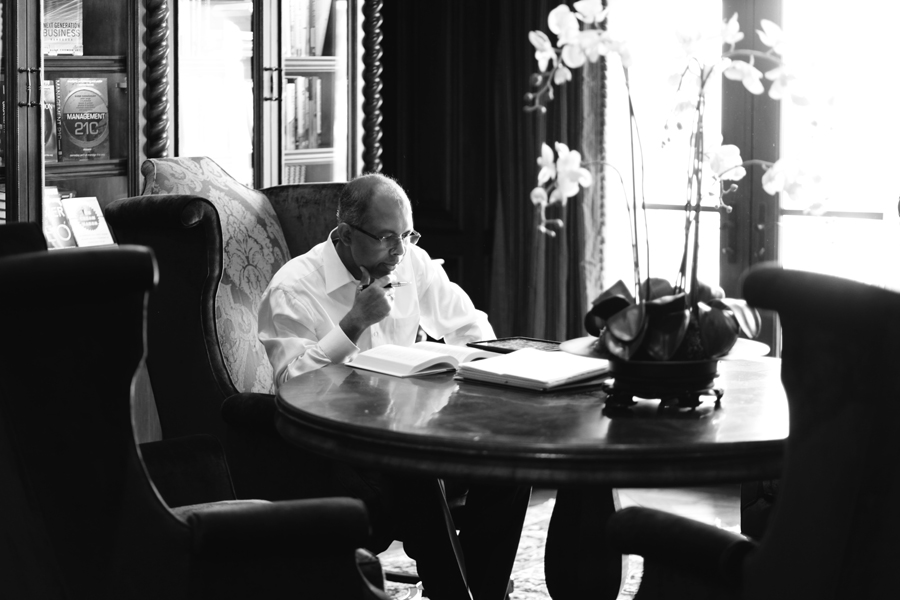
Philosophy
There have been countless essays on leadership authored by pioneers from nearly every part of our culture. Thanks to their work, we have the benefit of hindsight to help us shorten our experiential processes.
I have been fortunate to be able to follow such leaders—their work has inspired me to break new ground. From Jack Welch I learned to focus on employees, customers and the products and services that are produced every day. From Sam Walton I developed my instinct for organizational excellence. From Herb Kelleher I found the value of vibrant corporate cultures that pursue innovation at every opportunity. From Dr. Genichi Taguchi, I discovered robust methodologies that strengthen products and resist failure.
I also realize that rejection of the status quo is not something that we learn, but it is a byproduct of learning.
I believe rejection of the status quo is not something that we learn, but instead a byproduct of learning. As a result, I have made it my goal to expand my perspective on Quality—not only as a process, but also as a lifestyle choice that is every individual can emulate. For portability, I have packaged my ideas into labels like “LEO” and “Quality is Everyone’s Business,” but the packaging does not diminish my firm belief that we achieve greatness only when Quality becomes a mindset shared by all member of a community throughout society.
I have summarized some key points of my philosophy, a journey that has taken me more than two decades.
- Problems can be prevented through continuous improvement—getting it right the first time—and should be the goal of every organization as it designs, develops and deploys products and services.
- Quality must be the responsibility of every individual in all organizations. The “quality mission” cannot be delegated to one group or individual. It cannot be a ‘top down’ management process. For quality to be robust and sustainable, everyone in the organization must not only accept it, they must believe in it.
- Quality begins at the top. Without the commitment of leadership—and without them demonstrating that commitment in every aspect of their own lives, initiatives will stall or fail over time.
- Everyone has a stake in Quality. Not only must quality involve everyone all the time, but in order to achieve robust and sustainable results, everyone must have a stake in its implementation and continuous improvement through peer reinforcement and other methods.
- Quality is a balance of people power and process power, where “people power” takes into account the role of the Quality mindset”—approaching quality with honesty, empathy and a resistance to compromise. Process power is about solving problems, developing ideas and solutions, and then perfecting those ideas and solutions.
- Improving quality using a cookie cutter approach will not work. Every organization is unique and has different issues, problems, knowledge, skills, and capabilities—one size does not fit all. Therefore, the methods, processes, and procedures used to improve an organization must be tailored to their specific situation and needs.
I have learned that an effective leader is also an effective communicator who not only speaks eloquently when the need arises, but also engages people as a strong listener, both interactive and empathetic. The “leader communicator” builds a friendly atmosphere in which everybody communicates fearlessly without the shackles of traditional organizational hierarchy.
With this new media launch, my goal is to communicate not only as a leader, but as an effective communicator—to build new collaborations with friends and colleagues and to reach out with fresh ideas.


















